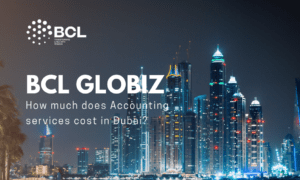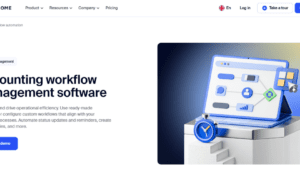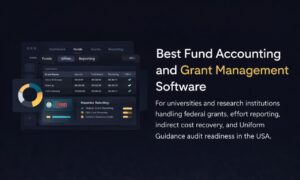In the ever-evolving landscape of business and finance, possessing strong accounting and finance skills is indispensable. Whether you’re an aspiring professional or a seasoned expert, the journey of skill enhancement is continuous. This guide explores ten effective strategies to bolster your prowess in accounting and finance. From mastering analytical tools to staying abreast of tax laws and regulations, each approach offers valuable insights to help you excel in your field.
Whether you’re enrolled in a BSc accounting and finance program or seeking to enhance your career prospects, these strategies provide a roadmap for continuous improvement and professional growth. Let’s delve into the realm of skill enhancement and unlock the potential for success in accounting and finance.
- Invest in Continuous Learning
The world of accounting and finance is constantly evolving, with new regulations, technologies, and best practices emerging regularly. To stay relevant, commit to lifelong learning. Attend workshops, seminars, and webinars, enroll in online courses, and pursue professional certifications such as CPA (Certified Public Accountant) or CFA (Chartered Financial Analyst).
- Develop Strong Analytical Skills
Analytical skills are fundamental in accounting and finance, as professionals are required to interpret financial data, identify trends, and make informed decisions based on their analysis. Practice critical thinking and problem-solving exercises to sharpen your analytical abilities, and familiarize yourself with analytical tools and software commonly used in the industry.
- Master Financial Reporting
Financial reporting is a cornerstone of accounting, providing stakeholders with essential information about an organization’s financial performance and position. Familiarize yourself with accounting standards such as GAAP (Generally Accepted Accounting Principles) and IFRS (International Financial Reporting Standards), and learn to prepare accurate and comprehensive financial statements.
- Enhance Your Excel Skills
Excel is a ubiquitous tool in the accounting and finance profession, used for everything from data entry and analysis to financial modeling and forecasting. Take the time to master advanced Excel functions and shortcuts, such as pivot tables, VLOOKUP, and macros, to increase your efficiency and effectiveness in handling financial data.
- Stay Updated on Tax Laws and Regulations
Tax laws and regulations are subject to frequent changes, making it essential for accounting professionals to stay updated on the latest developments. Subscribe to industry publications, attend tax seminars, and consult with tax experts to ensure compliance and optimize tax strategies for individuals and businesses.
- Improve Communication Skills
Effective communication is vital in accounting and finance, whether you’re presenting financial reports to stakeholders, explaining complex concepts to clients, or collaborating with colleagues on projects. Practice clear and concise communication, both verbally and in writing, and develop the ability to tailor your message to different audiences.
- Expand Your Network
Networking is a valuable tool for advancing your career in accounting and finance. Attend industry events, join professional associations such as the AICPA (American Institute of Certified Public Accountants) or CIMA (Chartered Institute of Management Accountants), and connect with peers, mentors, and potential employers through social media platforms like LinkedIn.
- Gain Practical Experience
Theory is essential, but nothing beats hands-on experience when it comes to mastering accounting and finance skills. Seek internships, part-time jobs, or volunteer opportunities that allow you to apply your knowledge in real-world settings and gain valuable practical experience.
- Embrace Technology
Technology is transforming the accounting and finance profession, with automation, artificial intelligence, and blockchain revolutionizing traditional processes and workflows. Stay abreast of technological advancements in the industry and embrace new tools and software that can streamline your work and improve efficiency.
- Seek Feedback and Mentorship
Feedback is essential for growth and development, so don’t be afraid to seek constructive criticism from supervisors, colleagues, or mentors. Additionally, consider finding a mentor who can provide guidance, support, and advice as you navigate your career path in accounting and finance.
FAQs (Frequently Asked Questions)
Is a BSc in accounting and finance a good degree?
Yes, a BSc in accounting and finance is a valuable degree that can open doors to various career opportunities in accounting, finance, auditing, taxation, and more.
How long does it take to complete a BSc in accounting and finance?
The duration of a BSc in accounting and finance program typically ranges from three to four years, depending on the institution and the student’s course load.
What career paths can I pursue with a degree in accounting and finance?
Graduates with a degree in accounting and finance can pursue careers as accountants, auditors, financial analysts, tax professionals, investment bankers, and more.
How can I finance my education in accounting and finance?
There are several options available to finance your education in accounting and finance, including scholarships, grants, student loans, and part-time employment.
Final Words
In conclusion, continuous learning and skill development are essential for success in the dynamic field of accounting and finance. By implementing these ten strategies and seeking opportunities for growth and improvement, you can enhance your skills, advance your career, and achieve your professional goals in accounting and finance. If you’re interested in pursuing a BSc in accounting and finance, consider exploring the program offered by Richmond University to lay a solid foundation for your future success.



































